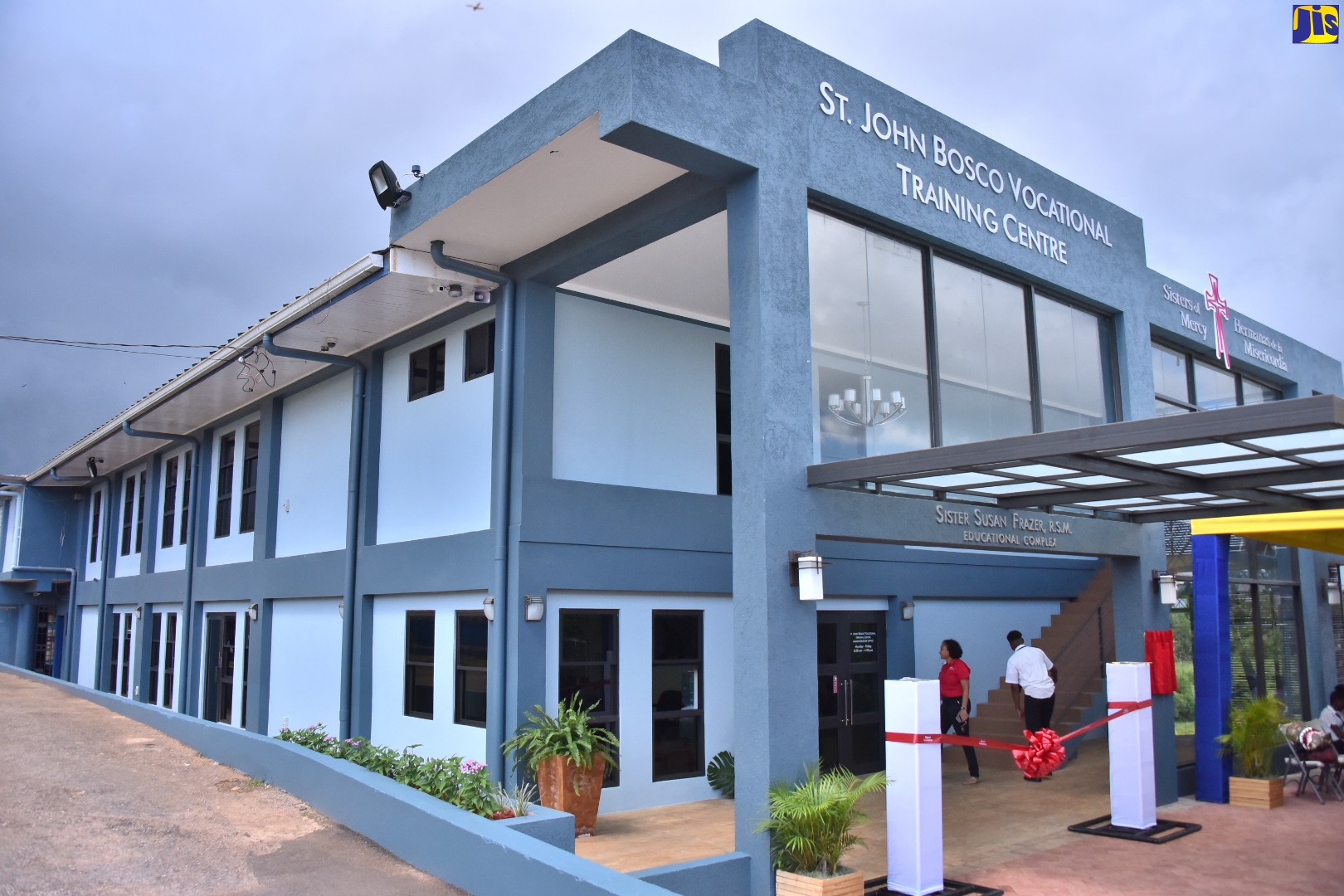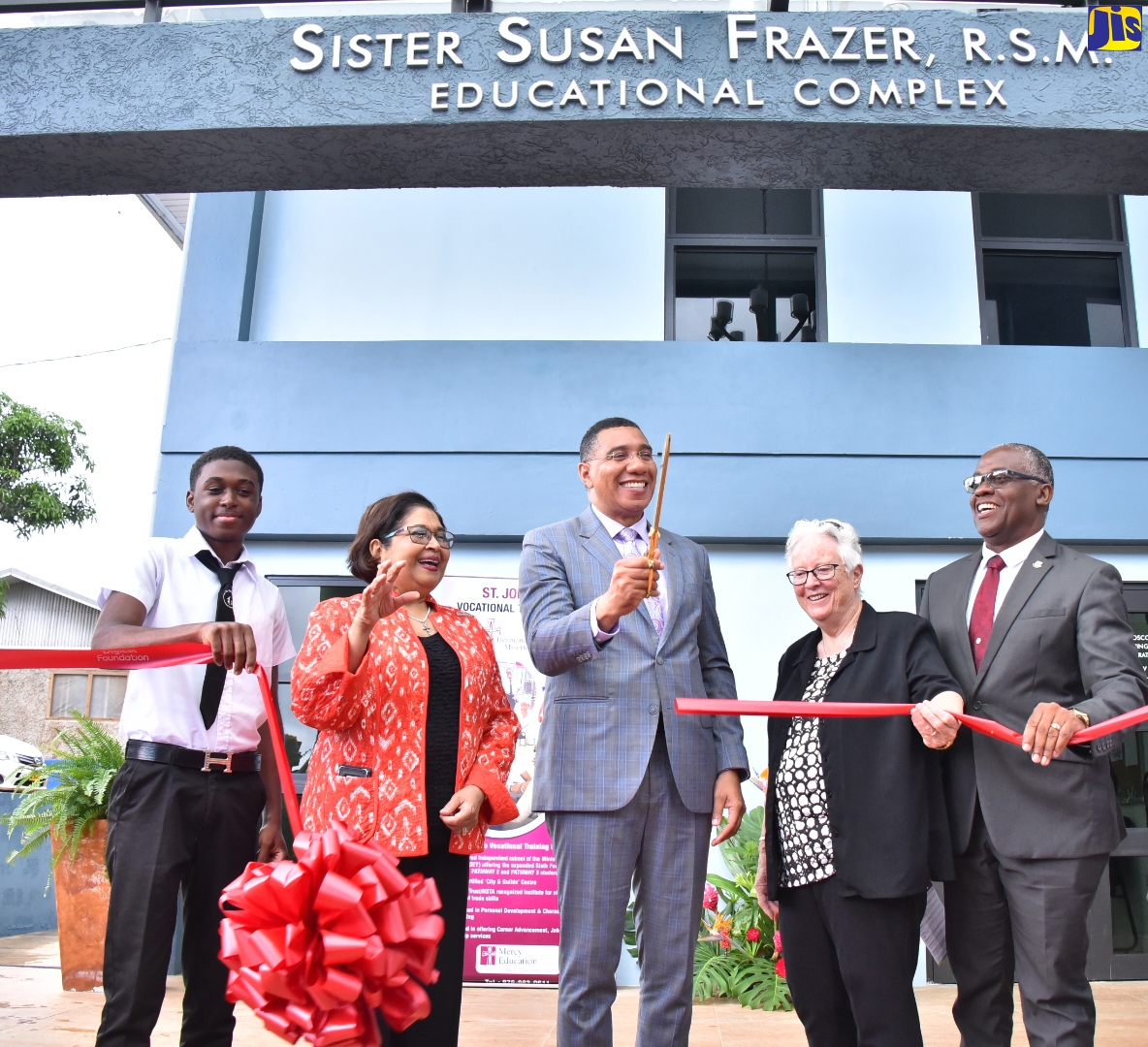Jamaica Is Entering a New Phase of Growth and Development
By: , September 8, 2022The Full Story
Prime Minister, the Most Hon. Andrew Holness, says Jamaican workers are free to move into countries that want and accept them, and “we are not going to try, in any way, to limit that”.
“We do want them to exercise their labour in Jamaica and be rewarded here, but our history and the nature of the economy and market forces are such that our labour will leave and go overseas, but the Jamaican family in the diaspora will only get stronger,” Mr. Holness said.
The Prime Minister was delivering the main address at the official opening of St. John Bosco Vocational Training Centre and Sister Susan Frazer Educational Complex, in Mandeville, Manchester, on September 7.
Speaking against the background of the recent debate about teachers migrating to take up better paying positions overseas, the Prime Minister said Jamaica has enough institutions to train persons for both the local and international markets.
“I believe it is now time that we take a more deliberate and planned approach to the training of labour for our local market and for countries that require our trained labour,” Mr. Holness said.
He argued that it can be done, as other countries have various programmes in place, and Jamaica has participated in planned migration schemes for workers, such as the recent approach by several cruise-ship companies that requested 10,000 workers.
Lauding the work being done at St. John Bosco, Mr. Holness cited the love, attention to detail and passion that went into the training of the students of the institution over the years and the quality of work that they did.
He said that while it is important to build institutions, they do not work without great leaders like Sister Susan and thanked her for the years of dedicated service.
Noting the shift in focus from a residential facility for orphaned boys to a vocational training centre for boys and girls, the Prime Minister argued that if institutions do not change, they become irrelevant and die.
He said that some exist with buildings and people, but are not fulfilling their purpose, only consuming resources, but not delivering anything, and when they close, that is a manifestation of the death of irrelevance.
It is important, Mr. Holness said, for institutions to pay attention to their environment and are always flexible and agile in responding to change.
“The Government is very happy that your new endeavour will be focusing on technical and vocational training,” the Prime Minister said.
“Never before in our history could we report six per cent unemployment. Some people might say they are not seeing the impact of the growth or increased employment in the economy. We are just entering into a new phase of growth and development in our society; and we have never had this challenge where we cannot find enough people for the job s that are available,” he added.
Mr. Holness emphasised that training and educating persons are key and must be aligned to industries that are growing.
Meanwhile, Chief Executive Officer of Digicel, Jabor Kayumov, whose Foundation spent some $40 million to construct the new facility, said over the years Digicel has supported initiatives that improve communities and people.
“Thanks to the improvements, the students are now exposed to the world of opportunity that will support their personal and professional development as future leaders, nation-builders and modern citizens. The legacy of the institution’s founding fathers has been strengthened and through the holistic learning experience, these students can now acquire and improve key skills needed to excel in the new economy,” he said.
Skills taught at the centre are food preparation and culinary arts, barbering, information technology (IT) and office application, customer service, food and beverage service, meat cutting and processing, animal husbandry, farming and greenhouse technology.
St. John Bosco is a registered and independent school, operated by the Sisters of Mercy in Jamaica, with a population of 120 students. Courses are conducted in partnership with the HEART/NSTA Trust, and students sit the City and Guilds examination.






